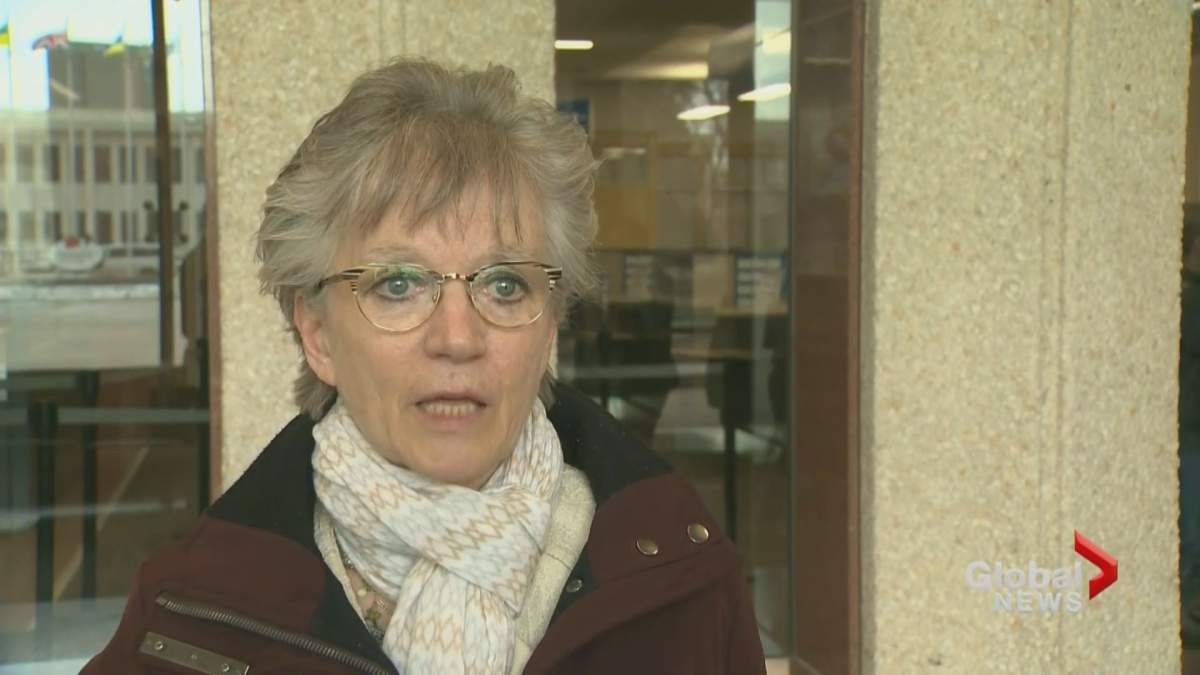A side-by-side comparison of the regulations governing taxis and rideshares in Regina is on the way in an attempt to level the playing field.

Regina city council began a review of the taxi bylaw during its Wednesday meeting, but after hearing from delegations representing the taxi industry, municipal politicians ultimately voted to delay any changes until they could look at the rideshare bylaw simultaneously.
The much less stringent rideshare legislation will be reviewed in June, one year after its implementation. Staff said they will work to have the comparison ready at the same time, although it could take a bit longer.
“We’re in a new phase in what’s happening out there in the industry,” Coun. Sharron Bryce said.
Coun. Jerry Flegel broached the idea of considering the two pieces of legislation in concert after hearing his colleagues’ concerns about modifying the taxi bylaw to create more equality without being able to adjust the rideshare bylaw accordingly.
“I don’t think that it is going to be the right thing,” Flegel said of making changes to the taxi bylaw Wednesday.

Get breaking National news
Coun. Bob Hawkins agreed that making changes “on the fly” in an effort to create equality was not the way to go.
- High blood pressure drug recalled over low blood pressure pill mix-up
- Canadian Tire ordered to pay nearly $1.3 million for false advertising
- ‘Doesn’t make sense’: Union files labour complaint over federal 4-day in-office mandate
- Ottawa gives Canada Post a $1.01-billion loan amid ongoing financial struggles
Mayor Michael Fougere noted that while the list of recommendations from the community and protective services committee attempted to address some of the existing discrepancies between the legislation governing taxis and rideshares, it clearly did not go far enough.
Spokespeople for Regina Cabs and Co-op Taxi were critical of the various areas in which taxis are regulated and rideshares are not. Both companies cited the costly extra inspection requirements in the taxi industry and that cabs need to be equipped with cameras.
Regina Cabs manager Sandy Archibald said her business is suffering.
“We’re at a crossroads to determine if the taxi industry continues to be a viable industry 24 hours per day,” she said.
Following council’s decision to wait for a side-by-side comparison before making any changes, Archibald said she was encouraged members appeared to hear the concerns, but that delaying the process further is disappointing.
“We’re already a year too late,” she said. “We’ve lost drivers. We’ve lost revenue. We’ve lost customers and as I’ve said earlier, we’ve lost optimism.
“We’re very hopeful that we can get this thing done right, but the sooner the better because our industry is hurting.”
Another challenge: rideshares aren’t required to provide accessible vehicles. Archibald told municipal politicians about the difficulties of maintaining the service, especially when it comes to finding drivers at night.
Delno Van de Kamp, of Van De’s Accessible Transit, raised different regulatory concerns based on the unique structure of his single-vehicle operation.
The computer-reporting requirements of the industry are impractically expensive for him, he told municipal politicians, successfully requesting an exemption.
“I’m asking for a change,” Van de Kamp said. “If there isn’t, I can’t afford to stay in business.”
If someone needs a ride from Van de Kamp, they just call him directly. He noted the limited travel options available to wheelchair users in Regina.
Van de Kamp told Global News he was pleased with the exemption.








Comments